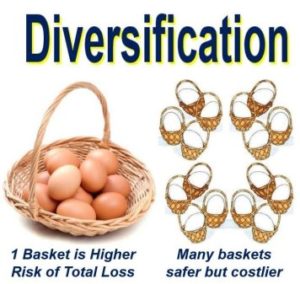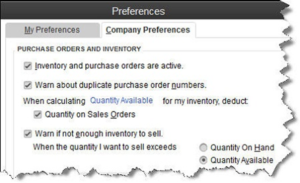Invest Stock Options
Invest Stock Options
“Deciding when to exercise your option can be a complex decision. Therefore, it is important to know the rules before you decide to cash in your options.”
Know the Rules
Employee stock options can provide you with a substantial source of deferred income and permit you to control the recognition of taxable income. You generally pay no tax when an option is granted because you are not receiving any shares of stock, only the option to purchase shares at a later date.
In general, holding an option to acquire stock may be better than holding the stock itself. The option provides protection against loss should the value of the stock decline below the exercise price. In addition, the option gives the holder equivalent ownership rights in the corporation, without requiring any immediate investment. Employee stock options offer the potential to have post-exercise stock growth taxed as capital gains rather than ordinary income. This provides an advantage for those who are in the top tax brackets
Know the Difference
Nonqualified Stock Options (NSOs) give an employee the option to buy corporate stock at a specified, fixed price (usually at fair market value at the time the option is granted). In general, you must exercise your option to buy within a specified time period–typically 10 years or less.
Upon exercising your rights, any gain realized from the spread (the difference between the exercise price and the fair market value) is taxed as ordinary income. However, any gain realized from the date the option exercised until the date the stock is sold is taxed as capital gain.
Incentive Stock Options (ISOs) also offer the option to purchase corporate stock at a set price, but ISOs cannot be issued with an exercise price below the current fair market value of the stock.
Generally, the spread on ISOs is not subject to ordinary income tax at the time you exercise the option. However, spreads may be subject to the alternative minimum tax (consult your GROCO financial adviser for more information). Gain realized upon the sale of the ISO stock may be taxed as capital gain. Provided you have held the ISO stock for at least one year from the date of exercise and at least two years from the date the option was granted, the entire gain recognized upon sale of the stock is taxed as a long-term capital gain.
When to Exercise Your Options
The decision of when to exercise your options depends on several factors as well as your particular situation:
Your Company’s Plan
Generally, options become exercisable over a period of years. For example, options granted in the company plan vest 20 percent a year over five years. It’s important to know the details of your firm’s plan before you make a decision.
Your Company’s Growth
Understanding how your company is poised for growth is another important factor in your decision-making process. Issues to review and understand are:
• How your company makes money – understand the industry that their earnings are tied to.
• Evaluate sales – compare your company’s sales to the industry average of competitors.
• Industry trends – monitor the industry that your company operates in. Look for growth opportunities and understand your company’s strategy for capturing market share.
• Understand the factors that can affect the liquidity of the market – are lower interest rates and tax cuts freeing up resources for the company’s growth plans?
• How your company is financing growth – are they growing as expected?
• Know your leaders and their track record – a company’s strong executive team will likely yield continued success.
• Understand your company’s P/E (price to earnings) ratio – look for strong cash flow and well-managed costs.
Finally, the way to make great returns in the market is by investing in great companies and then holding the stock for the long term.
Your Current Financial Needs
The decision to exercise should consider the need for cash, the proximity to the option’s expiration and/or the current stock value as compared to its expected future value. With regard to ISOs, because of taxes, the required holding periods should be considered when determining when to exercise the options and/or sell the underlying stock.
Balancing Your Portfolio
You may also choose to exercise an option if your company’s stock represents a large portion of your investment portfolio and you wish to diversify your holdings. Some professionals say to reduce investment risk, company stock should not represent more than 40 percent of your portfolio.
Market Conditions
Obviously, market conditions will play a large role in your decision to exercise your option. If the stock underlying the option appreciates, you may wish to hold on to options as long as possible in order to take advantage of future gains.
Tax Ramifications
In the case of NSOs, you may want to consider exercising your option over a few years to avoid being forced into a higher tax bracket. Remember, the spread on NSOs is subject to regular income tax at the time of exercise. Because appreciation occurring before exercise is taxed as ordinary income, it may be advantageous to exercise over time.
Your company’s nonqualified stock options may be transferable to family members. If so, you may be able to trim your estate tax by giving options to your heirs. The transfer may be gift tax free if the value transferred is $11,000 or less ($22,000 if married). notwithstanding the transfer, upon exercise the executive will be responsible for any income taxes generated.
This page is intended to provide a general guide to the subject matter and should not be regarded as a basis for ascertaining the liability to tax in specific circumstances. In such instances, separate analysis and advice should be taken. Although all reasonable care has been taken in the preparation of this manual, Greenstein, Rogoff, Olsen & Company, LLP cannot be held responsible for any errors it may contain, or any consequences sustained by any person who relies on it. We advise you to consult professionals before taking further action. We will be pleased to assist you with detailed planning.
We hope you found this article about “Invest Stock Options” helpful. If you have questions or need expert tax or family office advice that’s refreshingly objective (we never sell investments), please contact us or visit our Family office page or website www.GROCO.com.
To receive our free newsletter, contact us here.
Subscribe our YouTube Channel for more updates.

Alan Olsen, is the Host of the American Dreams Show and the Managing Partner of GROCO.com. GROCO is a premier family office and tax advisory firm located in the San Francisco Bay area serving clients all over the world.
Alan L. Olsen, CPA, Wikipedia Bio

GROCO.com is a proud sponsor of The American Dreams Show.

The American Dreams show was the brainchild of Alan Olsen, CPA, MBA. It was originally created to fill a specific need; often inexperienced entrepreneurs lacked basic information about raising capital and how to successfully start a business.
Alan sincerely wanted to respond to the many requests from aspiring entrepreneurs asking for the information and introductions they needed. But he had to find a way to help in which his venture capital clients and friends would not mind.
The American Dreams show became the solution, first as a radio show and now with YouTube videos as well. Always respectful of interview guest’s time, he’s able to give access to individuals information and inspiration previously inaccessible to the first-time entrepreneurs who need it most.
They can listen to venture capitalists and successful business people explain first-hand, how they got to where they are, how to start a company, how to overcome challenges, how they see the future evolving, opportunities, work-life balance and so much more..
American Dreams discusses many topics from some of the world’s most successful individuals about their secrets to life’s success. Topics from guest have included:
Creating purpose in life / Building a foundation for their life / Solving problems / Finding fulfillment through philanthropy and service / Becoming self-reliant / Enhancing effective leadership / Balancing family and work…

MyPaths.com (Also sponsored by GROCO) provides free access to content and world-class entrepreneurs, influencers and thought leaders’ personal success stories. To help you find your path in life to true, sustainable success & happiness. It’s mission statement:
In an increasingly complex and difficult world, we hope to help you find your personal path in life and build a strong foundation by learning how others found success and happiness. True and sustainable success and happiness are different for each one of us but possible, often despite significant challenges.
Our mission at MyPaths.com is to provide resources and firsthand accounts of how others found their paths in life, so you can do the same.
Introducing the “Total Return” Trust
Introducing the “Total Return” Trust The fundamental purpose of most trusts is to create a plan of financial protection for more than one beneficiary, often beneficiaries in different generations. “All the trust income to my surviving spouse, with the balance to be divided among our children at her death” might be used in a marital…
Making Tax-wise Investments
Making Tax-wise Investments Tax considerations are not, and should never be, the be-all and end-all of investment decisions. The choice of assets in which to invest, and the way in which you apportion your portfolio among them, almost certainly will prove to be far more important to your ultimate results than the tax rate that…
Reducing Risk With a Diversified Portfolio
Reducing Risk With a Diversified Portfolio Have you been worried about the stock market’s recent volatility? You’re not alone. The stock market in March was a roller-coaster ride that served as a reminder to investors that the market’s ups and downs can be a little dizzying. But a volatile market should not leave you feeling…
Are You Defining Items in QuickBooks Correctly?
[vc_row][vc_column][vc_column_text] Create item records in QuickBooks carefully, and QuickBooks will return the favor by running useful, accurate reports. Figure 1: Clearly-defined items result in precise reports. Obviously, you’re using QuickBooks because you buy and/or sell products and/or services. You want to know at least weekly — if not daily — what’s selling and what’s…




